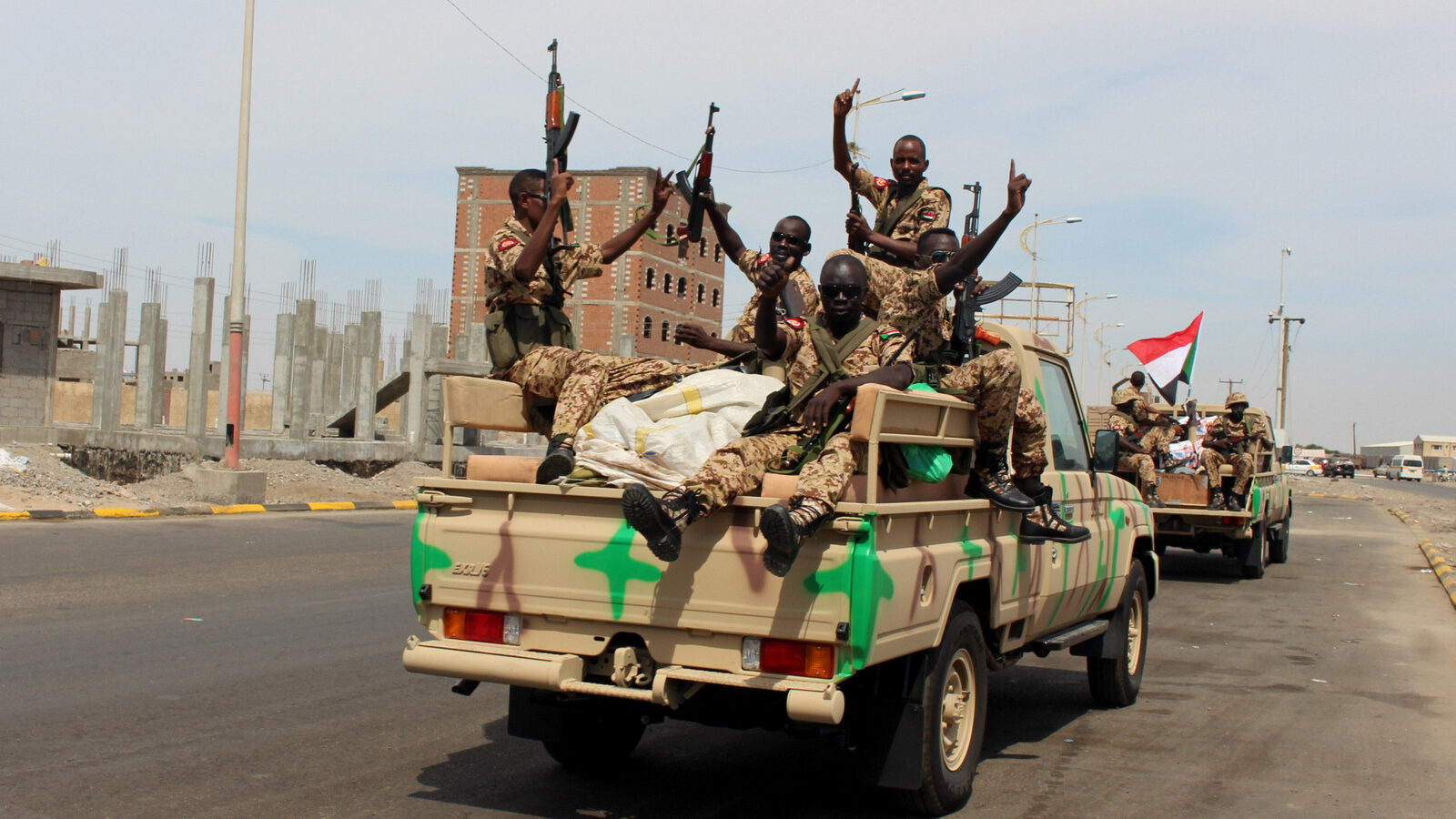AL-DALI, YEMEN — At least seven civilians, including women and a child, were killed in Yemen’s southern province of Dhali on Sunday when Saudi airstrikes hit two civilian cars as they were returning along a road in the al-‘Awd district after a shopping trip for the Islamic holy month of Ramadan. The region is 165 km north of the capital Sana`a, far from the confrontations between Yemeni tribes supported by the Houthis and mercenaries of the Saudi-led Coalition. Two travellers were also killed in another car driving on the same road.
Disabled Mahmod Ali Abduh al Maderi and his wife, Ali abduh al Marashi and his wife and daughter were all killed in the Saudi attack,” Mahmod’s nephew Ahmed told MintPress. “We gathered what remained of their scattered bodies beside the car and around. Some food, rice, pasta, noodles were mixed with the blood of the victims, glass and scrap.”
Ansar Allah condemned the attack. Mohammed Abdul Salam, the official spokesman of Houthis, decried “the criminal record of the Saudi-led aggression against Yemen under the cover of UN and international silence, which reveals the absent humanity.” Yemen’s Health Ministry said that the Saudi attack confirms the Coalition’s determination to continue its war crimes against the Yemeni people.
On Sunday, Saudi warplanes targeted the southwestern Yemeni city of Dhamar, killing and injuring many civilians, causing casualties and damage, while the Coalition launched a serial airstrike against many districts in the region to support its mercenaries who have failed in holding the strategic military location for the Coalition.
This attack was not the only shameful act perpetrated against Yemenis during the past few hours. On Sunday, a Sudanese mercenary fighter stabbed and raped a 50-year-old woman named Saada Omar Ahmad Akish, a mother in an impoverished family from the Al-Hima area, al-Tahita Directorate in Hodeida.
News of the incident soon spread and has become an issue for local residents. All Yemen tribes and parties — including Houthis, parties of the National Alliance, the Joint Meeting parties, as well as Saudi mercenaries — condemned the incident and described it as dirty. While Yemeni people may differ on various issues, most seem united in anger towards Sudanese mercenaries, who have committed such atrocities several times.
In response, angry demonstrations took place throughout Hodeida to voice anger against the Saudi-led Coalition, vowing revenge against the mercenaries for the honor of Yemenis. “To Yemenis, rape is worse than death! We swear by Allah we will take revenge on Sudanese soldiers. They will not return alive to their country,” one of the angry demonstrators told MintPress.
A brutal crime but not an isolated one
The rape is not an isolated incident: Ramadhana, a mother in Hodeidah province, was raped by a Sudanese mercenary a year ago, attacked while out collecting firewood near the Aby Mosa al-Ashaari military camp in the district of al-Khawkhah, southern Hodeida.
Dhaifullah al-Shami, spokesman of the government in Sana`a, said that raping and stabbing a 50-year-old Yemeni woman is a brutal crime contrary to all religions, customs, and human covenants, which can not go unnoticed. He called on the Sudanese people to take a clear position on the continued participation of the Sudanese army in the war against Yemen.
On April 16, Sudan’s junta said the Sudanese troops taking part in the Saudi-led war on Yemen will continue fighting. This statement came shortly after Saudi Arabia and the United Arab Emirates expressed support for Sudan’s Transitional Military Council (TMC). Sudan’s forces insisting to remain in Yemen caused a high level of anxiety among Yemeni families. The Janjaweed (Sudanese soldiers) have a shameful history of raping women. In the Tabit town north of Darfur in Sudan’s southern region, they raped 221 women in less than two days, according to a lengthy Human Rights Watch (HRW) report.
There are many incidents of rape that are not revealed for fear of the reaction of the Coalition, which often threatens the victim or kills eyewitnesses and victim alike; for example, a man named Raafat Danbaa, who testified against UAE`s soldier accused of raping a boy aged seven on March 5, 2019.
Mohammed Atta, a resident of Hodeida who formerly worked as a mercenary, said the latest rape has created a sense of anger against the Saudi-led Coalition, “as they do not seem to care about the honor of Yemeni citizens. I hope they think of this woman as a citizen of their countries.”
Fate worse than death
The frequent raping in Coalition areas of control is a common worry among Yemenis men and women alike: “I would rather she died than be raped,” said Khulah Ali, a mother of two daughters. Her fear of sexual harassment is bigger than her fear of losing any of her daughters. Some families prefer to kill their raped daughter, even though they acknowledged that the girl would be the victim in this scenario.
In fact, Yemen society is not ready to forgive females for being victims. Families will consider getting rid of their daughters, killing them, or hiding them from society if they are victims of such sexual assault.
In South Yemen, mothers have begun to exchange advice on how to protect their daughters from rape when Saudi mercenaries attack. “We live in terrifying horror not because of fear of murder but of rape; the shame of rape is what we cannot handle,” said Um Ali Shaker, a resident of Tuheita in Hodeida.
Since the war started against Yemen in 2015, it has become increasingly clear that Sudanese soldiers (the Janjaweed) were targeting women and girls, and what happened to Saada stands as an example of the variety of war crimes committed by members of the Saudi-led Coalition against Yemenis.
Feature Photo | Saudi-backed Sudanese mercenaries on a military vehicle gesture as they arrive to the port city of Aden, Yemen, Nov. 9, 2015. Wael Qubady | AP
Ahmed AbdulKareem is a Yemeni journalist. He covers the war in Yemen for MintPress News as well as local Yemeni media.


